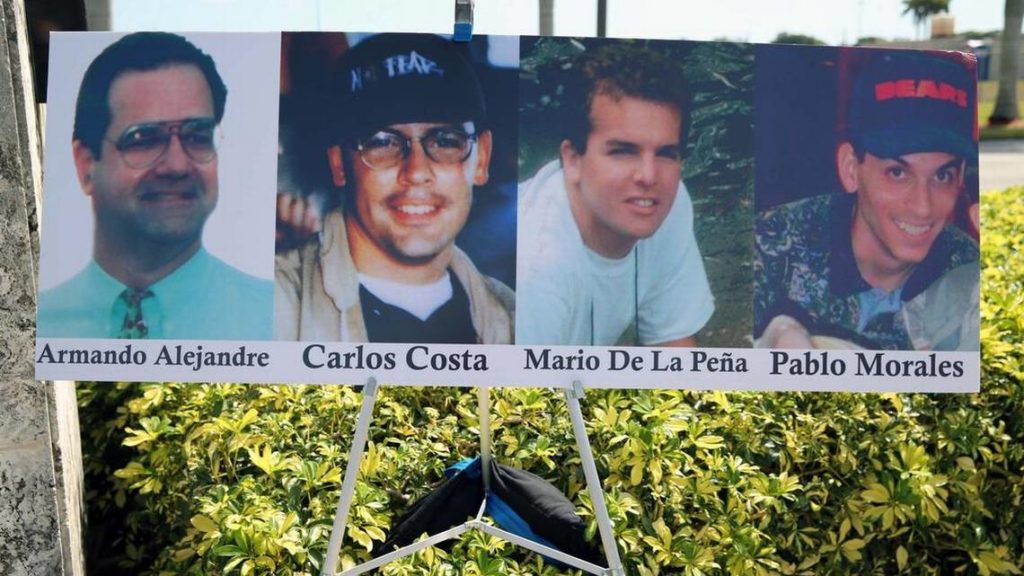
Hermanos al Rescate (Brothers to the Rescue), organized by Jose Basulto in 1991, with financial support from individual donors and several exile groups to fly over the Florida Strait to spot balseros so that the United States Coast Guard could find and rescue them. By May 1995, they had five planes, 35 volunteer pilots and a $1,200,000 annual budget from worldwide donations (including some from corporations such as American airlines) and had rescued 6,000 refugees.
Hermanos flew over Havana on January 9 and 13, 1996, to drop anti-Castro leaflets. When three Hermanos unarmed Cessna planes near Cuba, but still over international waters on February 24, Cuban air force Migs blew two of them out of the sky, killing the four occupants (three Cuban-American U.S. citizens and one Cuban-American resident), within sight of a tourist liner, creating an international incident and showing the brutality of the Castro regime. Despite strong United State pressure, the United Nations Security Council reaction was only a mild resolution of regret over the incident. Following this event, the U.S. signed into law the Helms-Burton Act codifying the U.S. embargo.








